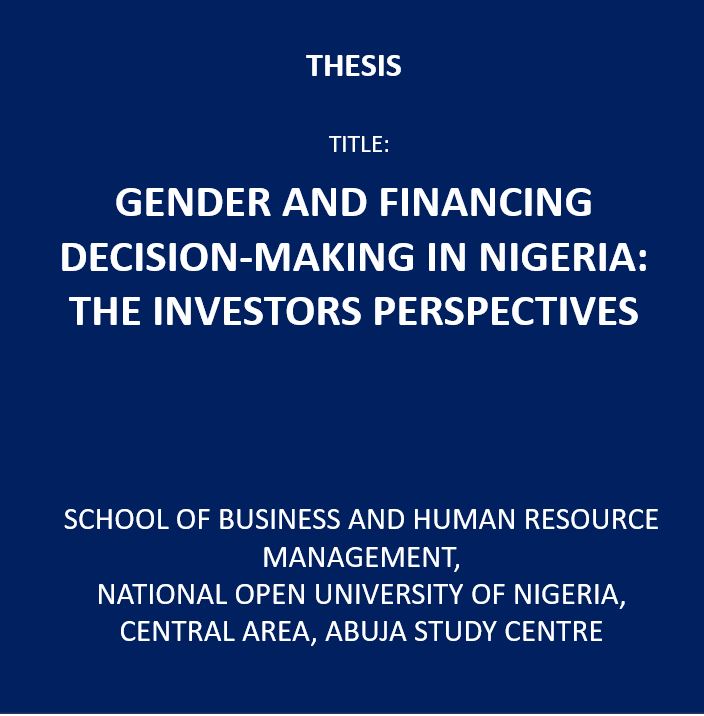No products in the cart.
Gender and Financing Decision-Making in Nigeria: The Investors Perspectives
₦14,500.00
GENDER AND FINANCING DECISION-MAKING IN NIGERIA: THE INVESTORS PERSPECTIVES
- PROJECT YEAR: 2014
- NUMBER OF PAGES: 92
- FILE TYPE: DOC
- DEGREE: MASTERS
- INSTITUTE: SCHOOL OF BUSINESS AND HUMAN RESOURCE MANAGEMENT, NATIONAL OPEN UNIVERSITY OF NIGERIA, CENTRAL AREA, ABUJA STUDY CENTRE
ABSTRACT
The economic participation of women and men are not equal in many developing countries. However, with respect to participation in the financial markets, both genders have equal access to investment in financial instruments, but women tend to be more risk averse in making investment decision. This study uses a survey to gather knowledge and to investigate behavior patterns among individuals of different genders in household and place of work. The problem formulations are: First, the kinds of investment decisions been undertaken in Nigeria. Second, the way gender relation affect financial decision among the men and women in the household and places of work. Third, previous studies also showed that gender difference affect investment decision due to risk and return elements in investment. The purpose of this project work is to determine if gender can really affect financial decisions. It investigates the nature of gender relation in respect to investment decision in the household and Business. The study used positivistic view and a deductive approach in conducting a literature review of theories. It relied largely on modern portfolio theory which has been expanded by researchers examining individual utility (risk theory or risk aversion) and behavioral aspects of investment behavior including overconfidence. The data for the study have been collected through surveying a very narrow target population, chosen some of the middle class Household and business owners within some geographical area of F.C.T. in Nigeria. A statistical Chi2 test was used to test hypotheses in order to measure the statistical difference between the genders. From the empirical findings and the analysis, this study has been able to draw some conclusions that there is a tendency among women to have a higher degree of risk aversion than men. This implies that women would take a lower risk when managing an investment portfolio. The study also concluded that: “There is a significant difference between female and male preference for a particular financial decision in Nigeria”.






